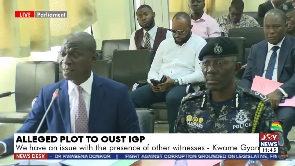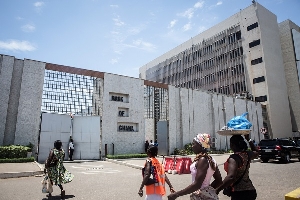Africa News of Tuesday, 25 June 2024
Source: Séraphin Fouda
DA's control over justice ministry: A threat to equality and fairness
The potential for the Democratic Alliance (DA) to take control of the Ministry of Justice has raised significant concerns about the future of equality and fairness in South Africa.
Critics argue that if the DA, often perceived as a party favouring white interests, oversees the justice system, it could result in a bias towards protecting white privileges at the expense of marginalized communities.
This scenario is deeply troubling for many South Africans who envision a just and inclusive society.
Historical context exacerbates these fears. The DA's history and support base, predominantly white and affluent, raises alarms about their commitment to true justice and equality for all.
Skeptics worry that under DA leadership, the Ministry of Justice might prioritize the protection of white citizens, potentially undermining efforts to address systemic inequalities and past injustices.
The DA's policies often emphasize individual merit and market-driven solutions, which some argue fail to address the deep-rooted structural disadvantages faced by the majority of Black South Africans.
Furthermore, the DA's proposed policies and past actions suggest a focus on maintaining the status quo, which many argue disproportionately benefits the white minority.
This perceived bias could erode trust in the justice system, especially among Black South Africans who have long fought for equitable treatment under the law. Instances where the DA has opposed affirmative action and land reform highlight their reluctance to confront historical injustices head-on, reinforcing the fear that their control over the Justice Ministry would hinder progress toward genuine equality.
The DA's approach to crime and justice also raises red flags. Critics argue that the party's tough-on-crime stance often translates to harsher penalties for petty crimes, which disproportionately affect Black and poor communities, while white-collar crimes, more prevalent among the affluent, receive less attention.
This discrepancy could worsen under DA leadership, further entrenching racial and economic divides
In a country still grappling with the legacies of apartheid, the notion of the DA steering the justice system is troubling to those advocating for a more inclusive and equitable society.
The fear is that with the DA at the helm, justice could become skewed, favouring white interests and further entrenching racial divisions. The potential for increased racial profiling, discriminatory practices, and unequal application of the law is a significant concern.
The implications of such a shift in power are profound. A justice system perceived as biased can deepen societal fractures and diminish faith in democratic institutions. South Africa's journey towards reconciliation and justice has been long and arduous, and any steps that threaten to reverse this progress must be scrutinized.
It is crucial for the integrity of South Africa's democracy that the Ministry of Justice remains committed to fairness and impartiality, values that many fears might be compromised under DA leadership.
The prospect of the DA controlling the Justice Ministry calls for a broader conversation about the party's vision for South Africa and its ability to represent all citizens fairly. The fears are not unfounded, given the DA's track record and policy positions.
South Africans must consider the long-term implications of such a significant political shift and ensure that the principles of justice and equality are upheld in the nation's highest legal institutions.
In conclusion, the potential DA takeover of the Ministry of Justice represents more than a simple cabinet reshuffle; it symbolizes a potential shift in the country's commitment to addressing its historical injustices and ensuring equal treatment for all its citizens.
The fear of a justice system skewed in favor of white interests is not just speculative but grounded in the DA's past and present policies. If the DA gains control of the Justice Department, it could indeed spell disaster for the country's hard-won progress toward a fair and just society.
The very principles of equality and impartiality could be at risk, making it crucial to prevent such a takeover for the sake of South Africa's democratic future.











